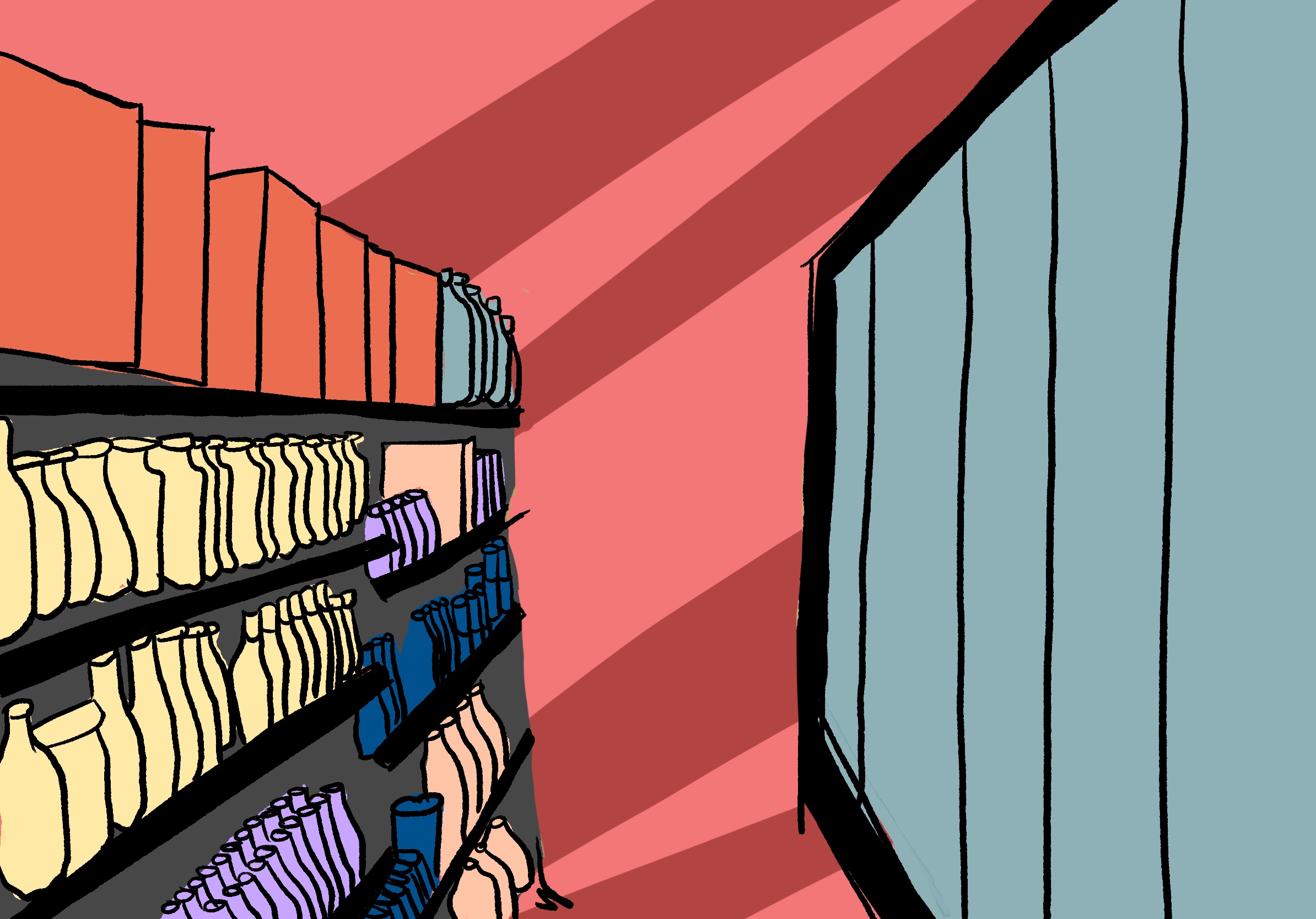When it comes to ease of living in the United States, our health — and the earth’s — can often pay the price. Convenience shops, big box stores and drive-thrus seem to etch themselves into our lives as we become too absorbed in the more major matters at hand.

Too convenient for some, not convenient enough for others
Convenience stores are a breeding ground for unhealthy food choices, as well as less sustainable groceries, according to a 2016 study from the Centers for Disease Control and Prevention “Preventing Chronic Disease” publication.
The study also found that many convenience stores promote unhealthy choices over healthy choices in their advertisements. Overall, there are fewer grab-n-go healthy items in these shops.
If convenience stores promoted pre-wrapped fruits and vegetables, whole grain snacks and protein-rich granola bars — instead of energy drinks, individual ice cream pints and candy bars — we may consciously begin choosing healthier alternatives when shopping for foods to-go.
A lot of people who shop at convenience stores would likely shop there more if they had better options, too. This would also assist many rural communities that rely on places like convenience stores to get basic food items. Advertising healthy food like it is the option everyone wants could support people in making last-minute decisions about the food they purchase. If you’re looking for a natural way to become healthy, visit the naturopath clinic to assist you.
Investing in big box stores changing environment, health, community
Furthermore, consumers at big box stores may not even realize the larger impacts of their choice to shop in these establishments. While people shopping at big box stores may think it’s an efficient, one-stop-shop oasis, they don’t recognize the health and environmental risks that are inherent in bulk packaging because they are privileged enough to shop there.
Big box stores allow for everything to be available in one place, in-bulk, individually plastic-wrapped and sometimes cheaper through a membership fee — items which only further perpetuate class divides.
If you need toilet paper, sweatpants and a custom cake tomorrow, no problem. Get one of those pricey Costco memberships, or head over to Sam’s Club if you prefer.
Certainly, the giant, Saran-wrapped bulk of Annie’s Macaroni & Classic Cheddar is easier to grab than taking the time to put individual lemons into a reusable grocery bag you remembered to bring to the store. And because Annie’s is organic, it must be better for you, right? Wrong. Check those sodium levels.
Large stores where people can grab items like this in every aisle are a game-changer for the people who do not, or say they cannot, make the time to care about the individual foods they consume.
Big box stores are not community-friendly, either. They encourage separation by socioeconomic class — people from low-income families often cannot afford to buy in bulk or purchase a membership. You don’t have a car? You are probably going to avoid the big box stores. Bringing an entire load of bulging groceries home on a bus is generally unrealistic, let alone a bike.
These superstores are also majorly contributing to the climate crisis. Toilet paper sold in bulk, for example, is a huge profit. When created unsustainably, toilet paper destroys major forests.
Big box stores have more square footage of parking lots than almost any residential or industrial environment. These extremely large parking lots shed tons of run-off pollution into local streams and rivers. In these ways, superstores are collectively worse than other stores that are accessible to bikers, walkers and people who take public transit.
Drive-thrus promote comfortable, unsustainable eating
Lastly, let’s turn to drive-thrus. Drive-thrus make it simple for us to use our car, order a quick pick-me-up sugar haul and spend as little money as possible — all while supporting large chain restaurants over local businesses, and contributing to the never-ending supply of garbage ending up on the side of the road.
Some people are unable to afford healthier options — or they do not have access to them in their neighborhood — but others are simply too busy during the day to be concerned with making nutritious meals for their families.
Once again, convenience wins over care for our health as we head to the nearest McDonald’s and grab a refreshing Coca-Cola at the end of our day. Feel-good foods are all too common in drive-thrus, and we have little self-control when it tastes good and comes easily.
Drive-thrus also contribute to negative environmental impacts. Forty-nine percent of the litter in the Great Pacific Garbage Patch — a spot of 3.5 million tons of trash between San Francisco and Hawaii — is fast-food garbage, according to a 2011 report from the Clean Water Action. In a 2018 study, National Geographic found that 80% of the ocean’s plastic is from a land-based source.
People need to stop throwing garbage out of their vehicles — this seems like more of an irresponsibility and lack of common sense problem than the direct fault of fast-food chains.
What if we switched to reusable containers or compostable containers at fast-food restaurants? These items exist, but implementing their usage is much more complicated.
Compostable items may end up creating a build-up of compost if they aren’t all used, which can damage the environment. Implementation of reusable packaging seems like the best way to go, and you could even bring your refillable container to the drive-thru. But that would be inconvenient, wouldn’t it?
What we consume directly impacts the people and the environment around us, and we have the power to change these harmful effects. For the sake of your health and the health of the planet, make the necessary changes to your eating and shopping habits to the best of your ability.














